9 ways to avoid "traps" when shopping at the supermarket
Salespeople often try to do everything to get customers to buy their products, so if you are not careful, you can easily be fooled.
Limit buying prepackaged foods
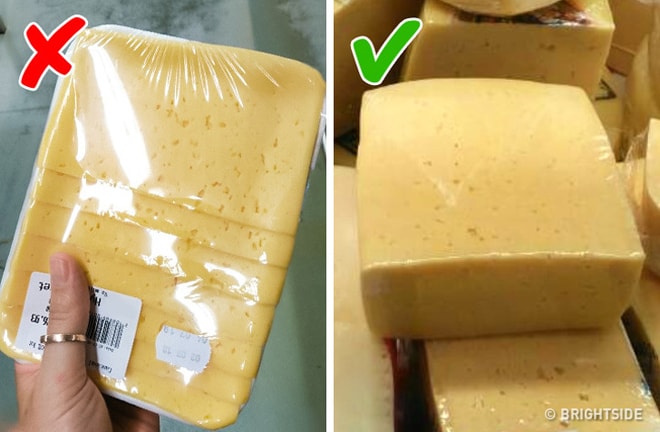
You should try to avoid buying individually packaged or sliced foods such as cold cuts, cheese, vegetables, sauces, and fruits because they are likely expired or about to expire but have been repackaged in a different way to "disguise" them.
In addition, nThe packaging date printed on the package doesn't tell you anything in this case becauseLabels can be changed several times a day. Even fresh food in prepackaged packaging can harbor bacteria. That’s why you should buy foods that are freshly cut and packaged right in front of your customers.
Don't buy strong-flavored salads.
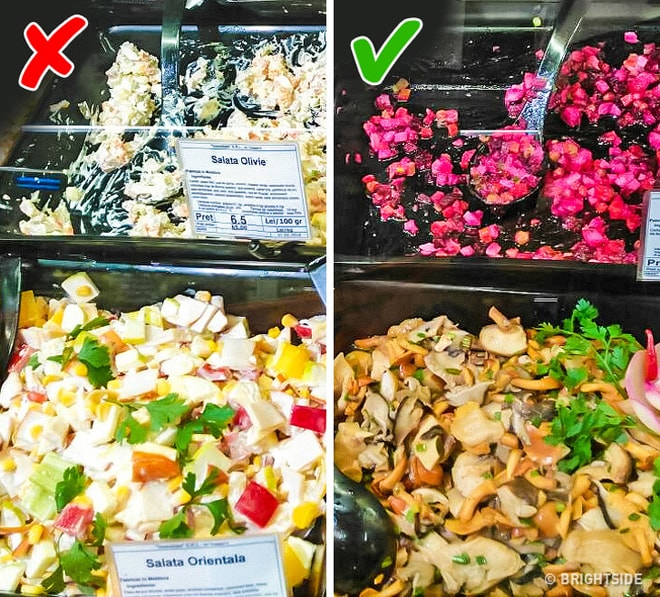
When buying ready-made salads, avoid those that use a lot of garlic and strong-smelling spices, as this is a way for the seller to disguise expired ingredients. When buying salads, remember that if they contain meat or fish, they will spoil faster than salads made entirely of vegetables. And salads with oil are safer than salads made with mayonnaise.
It is best to buy salads with separate dressings, which can be stored for up to 2 days. In addition, you can also pocket a few small tips with the naked eye. First, salads should be served in glass dishes because metal dishes make them more susceptible to odors and spoilage. Each salad will need its own spoon to scoop. Staff must also use gloves when touching the ingredients.
Check the condition of the packaging
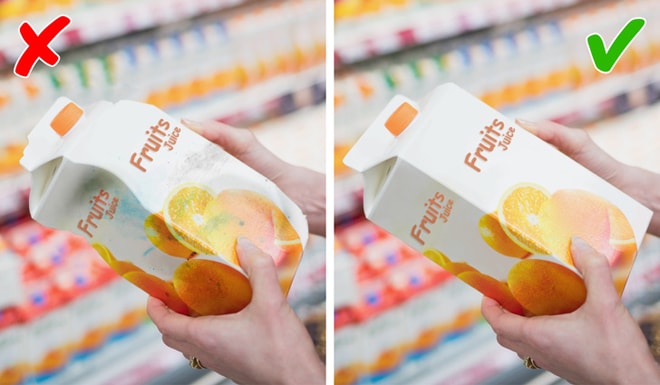
The packaging of a product is the element that can be seen most easily with the naked eye and can also reveal the defects inside the product. Therefore, you need to check whether the packaging is dirty, deformed, cracked or has dried oil stains.
Avoid sales display traps
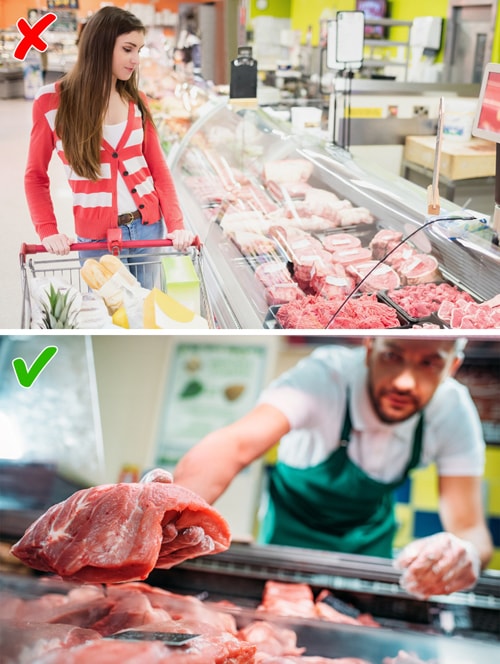
Salespeople are even taught how to display their products in the most appealing way, simply by turning the good parts outward for customers to see. The lighting in the meat case is also designed to make them look fresher and more appealing. Ask the staff to show you the meat under normal lighting to double-check.
The same goes for frozen foods. You should never buy foods with ice on top, as they may have been stored for days or have been thawed multiple times. This can be dangerous to your health and no one knows what is underneath the ice.
Also, if a piece of meat looks too moist, it means it has been rehydrated. If you cook it, it will not taste as good as it did when it was first cooked.
Be careful with colorful foods
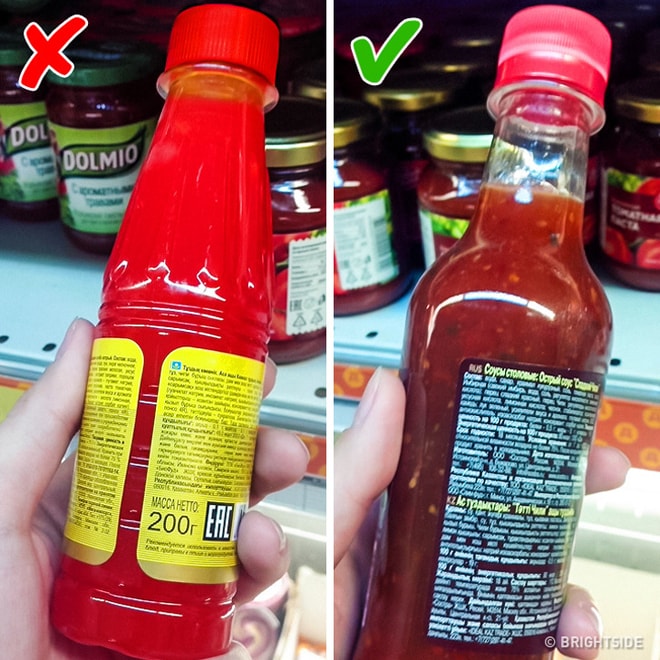
Beautiful on the outside does not mean delicious on the inside. Fruits with rough, spotted, wilted skins can sometimes be delicious and sweet on the inside. Fruits grown in greenhouses may look beautiful and appealing but may contain chemicals.
Many people think that the lighter the cheese, the more fat it will have and the creamier its taste. But the truth is that natural cheese is always white or yellow. Bright yellow is only achieved by adding food coloring.
The bright color of salmon can be achieved using chemical coloring. Another example is sauces. You should choose natural colors such as darker colors because there is a high chance that they do not have added coloring.
Secret of cargo arrangement diagram
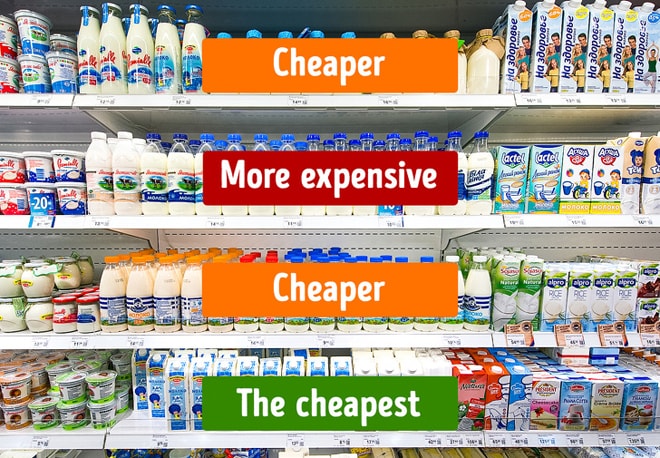
To sell more expensive goods, retailers often place them on shelves that are most visible to customers, such as at adult eye level. However, expensive does not always equate to quality.
For goods that are about to expire, in order to sell them, the seller will move them to the outside of the shelf. Don't be lazy, look for newer items on the inside.
Don't choose products with fancy names.
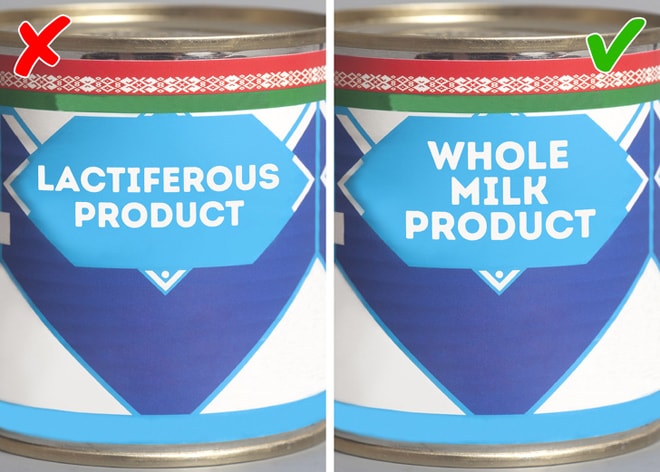
Strange-sounding names are a way for manufacturers to "bend the law" to create a sense of trust for customers. Don't think that phrases like "sugar-free", "cholesterol-free", "rich in vitamins" mean that the product is completely healthy. In fact, "sugar-free" is more likely to have added sweeteners, and products with vitamins are not always good.
Choose locally sourced goods
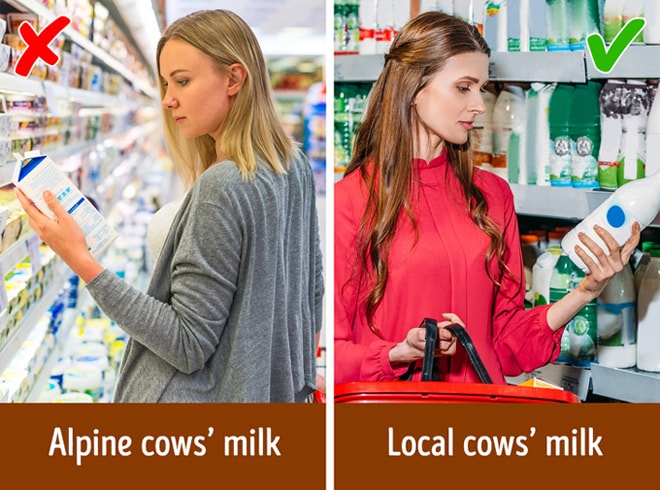
Sometimes we overlook essential information, for example checking whether a product is locally sourced. This is an important criterion when choosing fruit, vegetables and dairy products.It is better to buy locally sourced goods as long distance transportation can significantly affect the quality of food.
Ask the store staff for advice
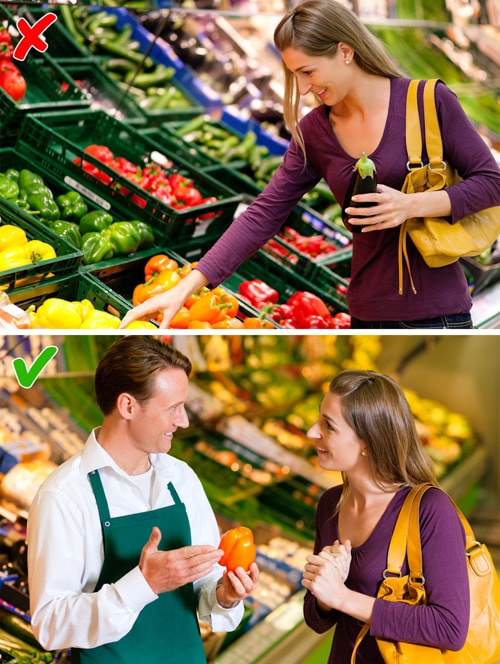
It is easy to "trap" customers by arranging but it is not easy to deceive customers. Therefore, ask the staff directly when you have any questions about the item: freshness, production date, import date... to make a more accurate choice.Even if the store employee tries to lie, you will probably see through it and draw your own conclusions.


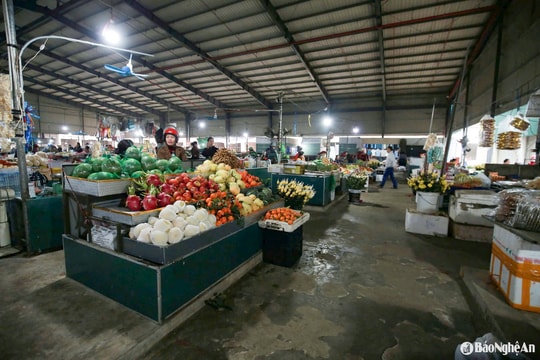

.jpg)

.jpg)

